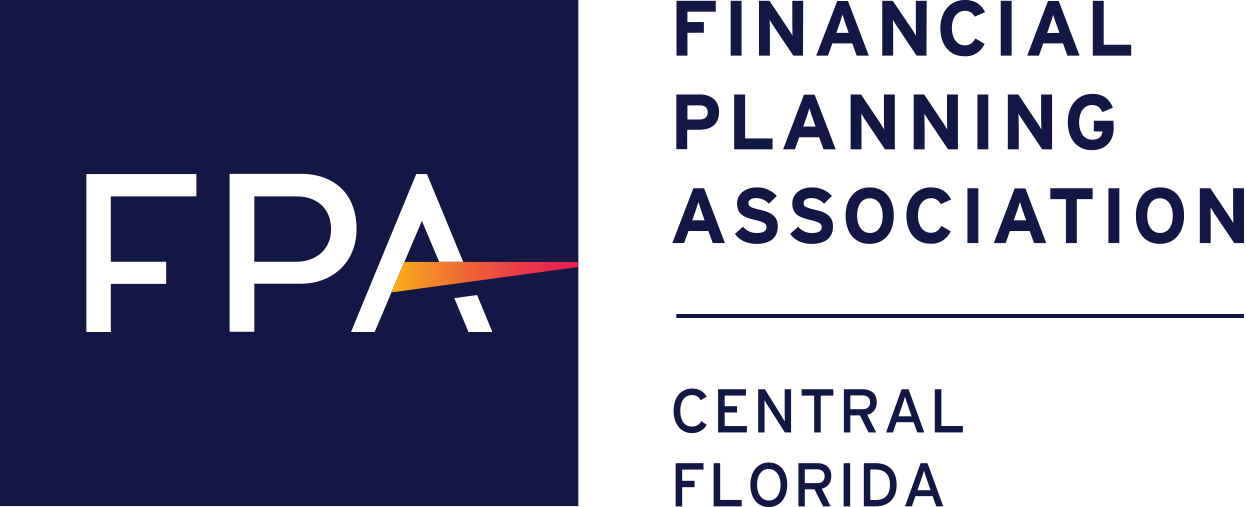Finding Relief from Financial Anxiety During the Covid-19 Crisis: Suggestions to Alleviate Angst and Maintain Perspective About Money

If you’re stressed about your financial situation, if you’re worried about covering your expenses from week to week and month to month, if you’re fretting about your employment status or about finding work after losing your job, if you’re concerned about your health and anxious about what the future holds, you are not alone.
Click here for the full article
THE CARES ACT: WHAT THE CORONAVIRUS RELIEF PACKAGE CAN DO FOR YOU

It was President John F. Kennedy who famously said, “Ask not what your country can do for you, ask what you can do for your country.”
As the current global health crisis has made clear, the compact between the U.S. government and its citizens works both ways. As the COVID-19 pandemic was thrusting hardship upon individuals, families, communities and businesses across the American and global landscapes, the U.S. government was hastily enacting the CARES (Coronavirus Aid, Relief, and Economic Security) Act in an effort to help its citizens meet the escalating financial challenges they are facing as a result of the unprecedented crisis.
Click here for the full article
Taking Advantage of the Federal Tax Filing Extension

The pandemic-stricken American public had reason to emit a deep sigh of relief this spring after the U.S. Treasury Department announced a timely — and in many cases urgently needed — postponement of the deadline for filing 2019 federal income tax returns.
Click here for the full article
7 Tips to Protect and Preserve Your Financial Well-Being When the World’s on the Brink of Recession

Suddenly a big “What if?” has become a big “What now?” Not only has the longest economic expansions in recent American history come to an abrupt end as a result of the COVID-19 (coronavirus) pandemic, economies around the world have slowed significantly as people stay home and businesses close to weather a global health crisis the likes of which hasn’t been seen in at least a century.
Click here for the full article
STARING DOWN THE BEAR [MARKET]: INVESTING INSIGHTS IN RESPONSE TO COVID-19
It will forever be remembered as the COVID-19 Crisis of 2020, when the coronavirus pandemic turned an unprecedentedly long bull market into a bear market in the matter of a week.

The COVID-19 (coronavirus) pandemic brought a halt to a period of sustained stock market and economic growth that dates back to the end of the Great Recession. After 11 years, 13% annualized earnings growth and 16% annualized trough-to-peak appreciation, people with investment assets were reintroduced to a phenomenon they hadn’t experienced in more than a decade: a bear market.
Click here for the full article
THE PROS, CONS AND COMPLEXITIES OF EARLY RETIREMENT ACCOUNT WITHDRAWALS
The Pros, Cons and Complexities of Early Retirement Account Withdrawals

The temptation to dip into retirement assets early can be powerful, especially during financially stressful circumstances. Unexpected job (and income) loss. A huge college tuition bill. A disability or health issue that cuts into earning power and brings unanticipated medical expenses. These are among many reasons that people might consider tapping into their retirement accounts — IRAs, 401(k)s and the like.
Click here for the full article
To Rent or Own a Home? Guidance to Decide What’s Best for You

Owning a home has long been considered an integral part of the American Dream, something to aspire to and, at least in general terms, a viable course of action for people seeking to own a hard asset whose value potentially may appreciate significantly over time. But changing market dynamics — rising home prices, uncertainty about interest rates and the like — along with peoples’ shifting priorities have raised new questions about home ownership and how exactly it fits in today’s version of the American Dream.
Click here for the full article.
INSIDE THE SECURE ACT: HOW NEW LAW COULD IMPACT YOUR MONEY, YOUR SAVINGS HABITS AND YOUR RETIREMENT
When the SECURE Act became law in late 2019, it was widely hailed as a step forward for people seeking greater financial security and flexibility in retirement.

“Passing the SECURE Act is a big victory that will help ensure that all hard-working Americans have a chance to build a nest egg for their retirement,” said Ohio Republican Sen. Rob Portman, who devised and championed some provisions of the law.
Prudential, a large insurance company that offers a range of retirement savings vehicles, said the law “contains the most significant legislative enhancements to the private-sector retirement system in over a decade and will improve the retirement readiness of millions of Americans.”
Click here for the full article.
2020 VISION: PREPARE FOR THESE SEVEN MARKET AND MONEY TRENDS IN THE NEW DECADE

The decade of the 2010s opened during the depths of what was later dubbed the Great Recession, an economic freefall precipitated in large part by the dubious activities of some of Wall Street’s biggest investment banks. Ten years prior, the 2000s were ushered in with a loud burst of the dot-com bubble, followed by a sustained bear market and recession.
While the 2020s appeared poised to open free of the economic turmoil that greeted the previous two decades, the new decade still presents its own unique set of financial issues, possibilities, opportunities and threats that warrant attention — and, likely, a measure of advance planning.
Click here for the full article.
A FINANCIAL REALIST’S GUIDE TO PREPARING FOR THE NEXT ECONOMIC DOWNTURN

Amid one of the longest economic expansions in recent American history, FPA member and CERTIFIED FINANCIAL PLANNER™ professional Scott A. Bishop can’t help but be pragmatic. While Bishop and his clients at STA Wealth Management in Houston, Texas, are enjoying the fruits of the current expansion, including steadily climbing equity markets and a robust job market, he’s been around long enough to sense the inevitability of the next economic downturn, which is why he recently penned a new article for his firm’s blog. It’s called “The Recession Survival Guide,” and it speaks to the growing possibility that sometime in the not-too-distant future — it could be months, it could be years — the current cycle will give way to the next recession.
Click here for the full article.
THE EIGHT MOST IMPORTANT PEOPLE IN YOUR FINANCIAL LIFE

As one of the world’s wealthiest people and most influential voices in investing and finance, Warren Buffett acknowledges he wouldn’t have reached those heights without guidance from three individuals in particular: his father Howard Buffett, his late first wife Susan Buffett and his mentor Benjamin Graham.
Click here for the full article.
FINISH STRONG AND START SMART: A FINANCIAL TO-DO LIST FOR YEAR’S END AND THE NEW YEAR

As much trouble as people have keeping New Year’s resolutions — an estimated 80 percent of resolutions fail within two months, according to findings by U.S. News & World Report — a better approach to goal-attainment might be to quit making resolutions and instead aim for smaller, more manageable targets.
That smaller-bite approach certainly can help when it comes to achieving personal financial goals. Breaking things down into an itemized checklist of small but significant steps can indeed make those goals more attainable and you less prone to feeling like a failure in pursuit of some grandiose but ultimately unrealistic financial resolution.
Click here for the full article
MAKE THE MOST OF A FINANCIAL WINDFALL

You just got the news: There’s a chunk of money unexpectedly coming your way. Now what?
Handling a financial windfall, such as a bonus from an employer, a large tax refund, an inheritance or even a winning lottery ticket or casino jackpot, is a “problem” most people would be happy to have. But with the potential tax consequences that accompany the newfound cash, along with the many possibilities for putting that money to constructive use both now and later, the best move may be talk yourself out of that immediate no-holds-barred spending spree and instead spend some time contemplating the best ways to maximize the windfall.
Click here for the full article
NEW DYNAMICS AND OTHER THINGS WE’VE LEARNED UNDER THE TRUMP TAX PLAN

The Trump Administration tax plan implemented in 2018 not only brought terms such as “lumping,” “bunching,” “SALT” (short for state and local taxes) and “pass-through business” into the mainstream personal finance and tax lexicon, it also has ushered in a variety of new tax strategies since taking hold almost two years ago.
What have personal finance and tax experts learned about efficiently managing taxes under the Tax Cuts and Jobs Act of 2017? Here’s a look at some of the maneuvers that are proving popular among financial/tax professionals and their clients.
Click here for the full article
Spotify, Netflix and now…Financial Planning. Could Financial Advice by Subscription Be Right for You?

From digital music and movies to clothing, meals, cosmetics and even automobiles, there’s a subscription service for many of today’s most in-demand products. And now, there are subscription services through which consumers can access professional financial planning expertise and guidance (including, perhaps, advice on how to cover the mounting cost of all those other services they’re paying for).
Click here for the full article
ON FIRE: IS RETIRING EARLY, IN YOUR 30S, 40S OR 50S, A VIABLE OPTION?

Financial Independence, Retire Early, or FIRE, is a real movement, where people build a sizable enough financial nest egg to quit working at an early age — typically in their 30s, 40s or 50s. But is FIRE a real possibility for you?
Members of the FIRE movement retire early either to stop working altogether or to take a temporary break from work, then pivot into another undertaking: a new career, home-schooling their kids, pursuing a philanthropic interest, etc. The motivation behind the movement are many. Some do it to take advantage of the wealth they have accumulated at a relatively young age; others do it to live a simpler, more fulfilling (and perhaps more frugal) existence. Some do it to leave behind a particularly stressful or unfulfilling professional track; others to pursue their passions.
Click here for the full article
GOOD DEBT AND BAD DEBT: BORROWERS ARE BETTER OFF WHEN THEY KNOW THE DIFFERENCE

Debt is truly a double-edged sword — a blessing when used thoughtfully and selectively but a curse when overused and relied upon indiscriminately, says FPA member and CERTIFIED FINANCIAL PLANNER™ professional Devin Pope of Albion Financial Group in Salt Lake City, Utah. “There is good debt, when it’s used as a positive tool that enables a person to acquire assets or skills that ultimately improves their financial standing, but that would otherwise not be attainable with capital on hand. That kind of debt generally makes sense for a person to carry on their balance sheet.”
Click here for the full article
Want the Inside Scoop on a Financial Adviser? Then Find Out How They’re Regulated

You’ve read the headlines: about Bernie Madoff-style Ponzi schemes robbing investors of their savings; about people who call themselves “financial advisers” but are in reality product-peddling salespeople, neither qualified nor authorized to provide financial advice; about individuals who claim they are working solely in your best financial interests when really they’re putting their own interests and financial gain first.
Click here for the full article
A NO-BULL BEAR MARKET SURVIVAL GUIDE FOR INVESTORS

Inevitably it happens whenever the stock market takes a negative turn of some duration: Investors begin to wonder if the downturn is the harbinger of an imminent bear market — a prolonged period of broad equity market declines and a return, perhaps, to the dark days of the Great Recession, when people saw the value of their assets decline steeply, at least on paper.
If the Great Recession and the behavior of the equity markets since then have taught us anything, it is that knee-jerk, short-sighted and often panic-fueled investing and financial decisions made in reaction to a bear market can erase years of solid investment performance and decision-making, hamper a person’s ability to meet long-term life goals and undermine their overall financial health.
Click here for the full article
Financial Planning for Families with a Person with Special Needs

As the parent of a 31-year-old daughter with special needs, Lili Vasileff knows first-hand just how much financial strain that situation can exert on a family. “The costs can be enormous, and it feels like you’re always at risk of losing benefits,” she says.
Click here for the full article
How to Be a Better Saver

As a nation, we clearly are better at spending our money than we are at saving it. That goes for our federal government, which has made a habit of running large budgetary deficits, and it goes for individuals and households, too. Indeed, according to a recent survey by GOBankingRates, 58% of adult Americans have less than $1,000 saved.
Click here for the full article
WONDERING IF YOU NEED A WILL? IF YOU HAVE TO ASK, THE ANSWER IS PROBABLY ‘YES’
 Who needs a will? “Well, any adult who might die [does],” says FPA member and CERTIFIED FINANCIAL PLANNER™ (CFP®) professional Leon C. LaBrecque of Sequoia Financial Group in Troy, Mich. “I know that sounds tongue-in-cheek, but…the stark facts are, almost everyone needs a will.”
Who needs a will? “Well, any adult who might die [does],” says FPA member and CERTIFIED FINANCIAL PLANNER™ (CFP®) professional Leon C. LaBrecque of Sequoia Financial Group in Troy, Mich. “I know that sounds tongue-in-cheek, but…the stark facts are, almost everyone needs a will.”
A will is a legal document (or set of documents) that details a person’s (or a couple’s) intentions regarding the handling of their dependents (such as children, if they have any), their assets, and other loose ends, upon their death. Without a legally sound will to explicitly state these intentions, vitally important decisions about the disposition of assets, guardianship of dependents/children and the like typically default to a state probate court, where they end up in the hands of a judge who, for better or for worse, must interpret the deceased person’s intentions. Click here for the full article
THE HEALTH SAVINGS ACCOUNT: A POWERFUL BUT OFT-OVERLOOKED ASSET FOR RETIREMENT
 Some 15 years after the U.S. government established health savings accounts to give people a tax-favored vehicle to pay for medical and healthcare expenses, the HSA remains “the best deal in the tax code,” according to CERTIFIED FINANCIAL PLANNER™ professional and FPA member William M. Harris, co-founder of WH Cornerstone Investments in Duxbury, Mass.
Some 15 years after the U.S. government established health savings accounts to give people a tax-favored vehicle to pay for medical and healthcare expenses, the HSA remains “the best deal in the tax code,” according to CERTIFIED FINANCIAL PLANNER™ professional and FPA member William M. Harris, co-founder of WH Cornerstone Investments in Duxbury, Mass.
That deal comes in the form of “a compelling mix of tax breaks and other savings that can keep [HSA account owners’] health insurance costs down,” explains FPA member Peter Lazaroff, CFP®, co-chief investment officer at Plancorp in St. Louis, Mo. “But under the right circumstances, these accounts offer an even more powerful — and largely underappreciated — chance to boost your long-term savings and provide a nest egg to offset the rising cost of health care later in life.”
Click here for the full article
Powers of Attorney: Why They Matter and How They Work
If you’re someone who wants a say in how your financial, business and household affairs are managed, and who manages them, should you yourself be unable to do so, if you want to dictate how certain decisions about your health and well-being will be made, and who will make them on your behalf, should you lose the capacity to make those decisions yourself, then it’s important to put all that in writing, in legal documents that are known generally as powers of attorney.

Powers of attorney refer not to a certain lawyer’s superhero attributes, but rather to the legal authority a person (known in legalese as the “principal”) assigns to another party (such as a spouse, family member, friend, trusted adviser, attorney, etc.), giving that party the power to make decisions on behalf of, and execute the wishes of, that person, in circumstances where that person is not in a position to make those decisions for himself or herself, as a result of being incapacitated, for example. The party to which the principal confers power of attorney thus becomes that person’s agent or “attorney-in-fact.”
Click here for the full article
Hire Expectations: How to Get the Most Out of a Get-to-Know-You Meeting with a Financial Adviser

So, you’re shopping for a financial adviser? When it comes time to sit down with a financial professional for an initial meeting, first impressions can go a long way toward determining whether that meeting ultimately will lead to a more lasting adviser-client relationship.
The person sitting across the table from you could be not only your chief financial guide, but also a valuable and trusted sounding board, strategist, troubleshooter, confidant, coach, problem-solver and voice of reason. In filling these important roles, a financial professional can have a profound impact on a person’s life, now and for decades to come. That first meeting can tell you much about the individual and the firm you’re considering hiring, and whether they’re a good match for you, in whatever role(s) you envision them playing on your behalf.
Click here for the full article
The Best Places to Stash Your Just-in-Case Cash
 A
A
In a perfect world, gender distinctions would have little or no bearing on a person’s financial life. There would be no major discrepancy between the earning power of men and women, and as a result, women could go about the business of managing their financial lives much as men would.
Because we live in a world where gender-based discrepancies in earning power, caregiving roles and other important areas are all too real, however, women must indeed confront financial issues that men may never have to face — money-related challenges that become especially evident at certain pivotal points in life. At the root of many of these challenges is pay inequity.
Click here for the full article
The Best Places to Stash Your Just-in-Case Cash
 As important as maintaining a reserve of readily accessible cash is to protect against life’s big what-if’s, the idea of setting aside money for something that may never come to pass isn’t exactly appealing, particularly if it means parking that cash in an account where it’s going to earn next to nothing in interest.
As important as maintaining a reserve of readily accessible cash is to protect against life’s big what-if’s, the idea of setting aside money for something that may never come to pass isn’t exactly appealing, particularly if it means parking that cash in an account where it’s going to earn next to nothing in interest.
Yet keeping an adequate and accessible reserve of cash in some type of low-risk account — call it an emergency fund, a rainy-day fund, etc. — is a must, financial planners agree, even when interest rates are near rock-bottom, as they have been for much of the last decade.
Click here for the full article
Make the Most of the 529 Plan — for College and Maybe Before, Too
 The 529 plan is a tax-favored vehicle established by the U.S. government that parents (or anyone, for that matter) can open and contribute to on behalf of a child to fund that child’s college education. For many families, it has become an indispensable tool for managing the college costs that have been escalating at a rate well beyond inflation over the past decade and beyond. Indeed, according to the College Board, in-state tuition and fees at public four-year institutions increased at an average rate of 3.1 percent annually above inflation between 2008-09 and 2018-19.
The 529 plan is a tax-favored vehicle established by the U.S. government that parents (or anyone, for that matter) can open and contribute to on behalf of a child to fund that child’s college education. For many families, it has become an indispensable tool for managing the college costs that have been escalating at a rate well beyond inflation over the past decade and beyond. Indeed, according to the College Board, in-state tuition and fees at public four-year institutions increased at an average rate of 3.1 percent annually above inflation between 2008-09 and 2018-19.
Click here for full article
Charitable Giving in the Trump Era: Five Tax-Favored Strategies
 With the giving season approaching and the 2018 tax year nearing its close, charitably minded people will have to get more creative with their giving strategies in order to reap tax benefits under the sweeping federal tax package that took hold at the start of the year.
With the giving season approaching and the 2018 tax year nearing its close, charitably minded people will have to get more creative with their giving strategies in order to reap tax benefits under the sweeping federal tax package that took hold at the start of the year.
Click here for full article
Make It Personal: Why Customized Advice Matters When Working With a Financial Pro
 Here is the final installment of a five-part series on The Power of Financial Planning, we look at the all-important personalization aspect of financial planning — how a person who works with a financial professional should expect to receive individualized advice and services, and how to determine that’s what they’re getting.
Here is the final installment of a five-part series on The Power of Financial Planning, we look at the all-important personalization aspect of financial planning — how a person who works with a financial professional should expect to receive individualized advice and services, and how to determine that’s what they’re getting.
Click here for full article
Planning for Nine of Life’s Biggest What-ifs
 Life is full of “what-ifs” — difficult-to-foresee developments that, if they come to pass, can turn a person’s life upside down, particularly if he or she hasn’t taken steps to plan for them in advance. One of those big what-if’s became a “what now?” for FPA member Kelly Hokanson in 2016, when the then-45-year-old was diagnosed with Stage 2 colorectal cancer.
Life is full of “what-ifs” — difficult-to-foresee developments that, if they come to pass, can turn a person’s life upside down, particularly if he or she hasn’t taken steps to plan for them in advance. One of those big what-if’s became a “what now?” for FPA member Kelly Hokanson in 2016, when the then-45-year-old was diagnosed with Stage 2 colorectal cancer.
Click here for full article
Why Consider a Career in Financial Planning? Let’s Count the Reasons
 “I love the idea of directly impacting peoples’ lives,” Natalie Colley says from her office on Broadway in New York City.
“I love the idea of directly impacting peoples’ lives,” Natalie Colley says from her office on Broadway in New York City.
That desire to personally connect with and positively affect others is the chief reason Colley left the pharmaceutical industry behind after seven years as a chemical engineer for a career as a financial planner.
Click here for full article
Spotting – and Addressing – Five Potentially Damaging Financial Blind Spots
 As many mirrors and cameras as automobile manufacturers put on vehicles these days to help prevent accidents, drivers still must contend with blind spots. They can’t see everywhere around them, all the time.
As many mirrors and cameras as automobile manufacturers put on vehicles these days to help prevent accidents, drivers still must contend with blind spots. They can’t see everywhere around them, all the time.
Click here for full article
A Financial Wellness Check-up in 11 Steps
 Wellness, at its core, means being in a good place. It can apply to a person’s physical, mental and even financial state. And yes, as nebulous as the concept might seem, a person’s wellness can be measured.
Wellness, at its core, means being in a good place. It can apply to a person’s physical, mental and even financial state. And yes, as nebulous as the concept might seem, a person’s wellness can be measured.
Click here for full article
The Power of Financial Planning, Part Four
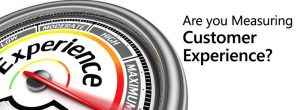
In the world of financial planning, where it can be difficult to discern one financial adviser from the next amid a myriad of professional designations, specializations and marketing claims, experience can be a true differentiator.
Click here for full article
Crystal Ball Gazing: Watch for These Seven Developments and Their Impact on Your Finances
 Here’s what we know: The U.S. economy remains in high gear. Unemployment is near all-time lows. Investors are content as the stock market continues its lengthy run-up. Interest rates have nudged higher, as has the U.S. inflation rate. All against the backdrop of a volatile global political climate.
Here’s what we know: The U.S. economy remains in high gear. Unemployment is near all-time lows. Investors are content as the stock market continues its lengthy run-up. Interest rates have nudged higher, as has the U.S. inflation rate. All against the backdrop of a volatile global political climate.
Click here for the full article
Five Tips for Reckoning with Rising Healthcare Costs
 All it takes is a glance at the bills from your medical and health insurance providers — and the dent that paying them makes in your bank account — to know that healthcare costs are rising steadily from year to year, with little sign of abating.
All it takes is a glance at the bills from your medical and health insurance providers — and the dent that paying them makes in your bank account — to know that healthcare costs are rising steadily from year to year, with little sign of abating.
Click here for the full article
The Phases of Retirement and How to Prepare for Them
 Everyone has a unique vision for how their retirement will unfold — a story they want to write for themselves once they move to the next phase of life.
Everyone has a unique vision for how their retirement will unfold — a story they want to write for themselves once they move to the next phase of life.
“The story is different for each person,” observes FPA member Monica L. Dwyer, a CERTIFIED FINANCIAL PLANNER™ (CFP®) professional with Harvest Financial Advisors in West Chester, Ohio. “In the beginning, some grapple with not working. One client told me that it took him a full year before he could relax and enjoy the morning paper without feeling he had to be somewhere. Others slide right into retirement and have been waiting for it for so long that they are really ready.”
Click here for the full article
Four Strategies to Reckon with the Stock Market Roller Coaster
 After a quiet, steady and sometimes spectacular bull market in 2017, stock market volatility returned with a stomach-churning vengeance early in 2018, conjuring unpleasant memories of the major recession of a decade ago, and reminding investors just how important it is to take steps to protect their assets from the wild, unpredictable market
After a quiet, steady and sometimes spectacular bull market in 2017, stock market volatility returned with a stomach-churning vengeance early in 2018, conjuring unpleasant memories of the major recession of a decade ago, and reminding investors just how important it is to take steps to protect their assets from the wild, unpredictable market
swings that are all too common these days.
Click here for the full article
The Power of Financial Planning, Part Three Click here for the full article
To Maximize the Power of Financial Planning, Turn to a Specialist The third installment in a five-part article series on The Power of Financial Planning explores the many areas of specialization within the field of financial planning, and why it can be in a person’s best interests to work with a specialist who’s uniquely qualified to address a very specific set of circumstances and needs. Please let me know if you would like to access Part One and Part Two of the series.
The third installment in a five-part article series on The Power of Financial Planning explores the many areas of specialization within the field of financial planning, and why it can be in a person’s best interests to work with a specialist who’s uniquely qualified to address a very specific set of circumstances and needs. Please let me know if you would like to access Part One and Part Two of the series.
Cryptocurrency and Bitcoin: A Quick Primer for Curious Investors
 In early April 2018, The Street, a finance and investing website, ran an article headlined, “Why Cryptocurrency Could Be the Next Frontier in Retirement Investing.” A few days later, an article headlined, “The Scary Truth About Bitcoin and How It Could Ruin Your Retirement,” appeared on The Cheat Sheet, a lifestyle website.Click here for the full article
In early April 2018, The Street, a finance and investing website, ran an article headlined, “Why Cryptocurrency Could Be the Next Frontier in Retirement Investing.” A few days later, an article headlined, “The Scary Truth About Bitcoin and How It Could Ruin Your Retirement,” appeared on The Cheat Sheet, a lifestyle website.Click here for the full articleWorking Through Tough Financial Issues with Adult Children
 If you have grown children, chances are you have first-hand experience wrestling with the complicated, often delicate family dynamics of helping a grown child financially while still trying to meet your own financial obligations and goals.
If you have grown children, chances are you have first-hand experience wrestling with the complicated, often delicate family dynamics of helping a grown child financially while still trying to meet your own financial obligations and goals.
Click here for the full article
Financial Planner or CERTIFIED FINANCIAL PLANNER™? One Word Can Make a World of Difference
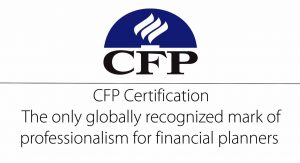 Martha and Matt have goals. They want to find the time and the money to travel with their kids. They want to better manage their household finances. They want to help pay for their kids to attend college.
Martha and Matt have goals. They want to find the time and the money to travel with their kids. They want to better manage their household finances. They want to help pay for their kids to attend college.
Click here for the full article
Are You Making the Right Assumptions About Your Money?

Kelvin and Kesha are working with an architect to design their own home, and to do so, they must make certain assumptions. They plan to have children, so their floorplan includes two extra bedrooms. A two-car garage is also a priority, although they have only one car now.
Click here for the full article
The Power of Financial Planning, Part Two: What Sets a True Financial Planner Apart from the Crowd
 The spectrum of professionals who offer financial planning services is a broad one — so broad, in fact, that it can be difficult to define exactly what a “financial planner” is and the kinds of skills they should bring to the table in their work with clients.
The spectrum of professionals who offer financial planning services is a broad one — so broad, in fact, that it can be difficult to define exactly what a “financial planner” is and the kinds of skills they should bring to the table in their work with clients.
Click here for the full article
A Baker’s Dozen for the Bottom Line: 13 Financial Hacks to Save Time, Money and Hassle
 People are constantly looking for “hacks”: ways to improve their lives, to do more with less, to find new ways to gain and maintain an edge. It’s called progress, and it’s something human beings seemingly are wired to want and to seek.
People are constantly looking for “hacks”: ways to improve their lives, to do more with less, to find new ways to gain and maintain an edge. It’s called progress, and it’s something human beings seemingly are wired to want and to seek.
Click here for the full article
Kids, Parents and Paying for College: Seven Steps to Striking the Right Balance
https://www.fpafla.com/4391-2/ If you’re a student who wants to go to college, or you’re the parent of a student with college aspirations, the dollar figures can be daunting. As of 2017, according to the College Board, the average all-in price (including tuition and fees) for four years at an in-state public college approaches $40,000.
If you’re a student who wants to go to college, or you’re the parent of a student with college aspirations, the dollar figures can be daunting. As of 2017, according to the College Board, the average all-in price (including tuition and fees) for four years at an in-state public college approaches $40,000.
Click here for the full article
What the New Tax Law Means for Your Wallet, Your Financial Future
 It’s not a question of whether the most far-reaching federal tax overhaul in decades will impact you, but how much it will impact you, according to personal finance experts.
It’s not a question of whether the most far-reaching federal tax overhaul in decades will impact you, but how much it will impact you, according to personal finance experts.
Click here for the full article
An Investor’s Guide to Transitioning Your Money — and Your Mindset — to Retirement
 The transition to retirement after years in the workplace, as welcome as it may be, can also be jolting and even downright daunting, for all the changes it brings to a person’s day-to-day lifestyle, to their state-of-mind and to the handling of their finances.
The transition to retirement after years in the workplace, as welcome as it may be, can also be jolting and even downright daunting, for all the changes it brings to a person’s day-to-day lifestyle, to their state-of-mind and to the handling of their finances.
Click here for the full article
Calendar Alert! 20 Birthdays and Milestones That Matter Most in Your Financial Life
 Just like certain birthdays and life milestones carry extra personal significance, there are certain points in life that carry extra financial weight.
Just like certain birthdays and life milestones carry extra personal significance, there are certain points in life that carry extra financial weight.
Starting in the late teens and running through virtually every decade thereafter, the calendar of your life is dotted with dates and milestones, some representing key financial decision points and others that trigger important money-related developments.
Click here for the full article
Maximizing the Value of Voluntary Workplace Benefits
 Each year the arrival of fall marks the onset of a different kind of season, one in which a window of opportunity opens for working Americans to take advantage of the benefits they’re offered at work.
Each year the arrival of fall marks the onset of a different kind of season, one in which a window of opportunity opens for working Americans to take advantage of the benefits they’re offered at work.
Click here for the full article
What Diversification Can Do for You (and Your Assets)
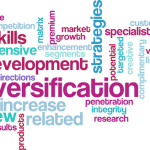 Stock investors love a bull market. But what about when the stock market heads south, like it did less than a decade ago, during the Great Recession? As an investor, would you be content to enjoy much, but perhaps not all, of the gains a bull market provides, while also gaining an extra measure of protection to preserve the value of your assets in the face of a stock market decline? As someone who has worked long and hard to build a financial nest egg, would you prefer that nest egg got a smoother, more predictable ride rather than subjecting it entirely to the volatile whims of the stock market?
Stock investors love a bull market. But what about when the stock market heads south, like it did less than a decade ago, during the Great Recession? As an investor, would you be content to enjoy much, but perhaps not all, of the gains a bull market provides, while also gaining an extra measure of protection to preserve the value of your assets in the face of a stock market decline? As someone who has worked long and hard to build a financial nest egg, would you prefer that nest egg got a smoother, more predictable ride rather than subjecting it entirely to the volatile whims of the stock market?
Click here for the full article

Nine Key Sources of Retirement Income—and How to Manage Them Efficiently
Year after year, in survey after survey, the biggest fear people report having about retirement has to do with either running out of money or falling short of income once work — and the paycheck that accompanies it — stops.
Click here for the full article

Financial Planning Keys for Each Decade of Adulthood: 20s, 30s, 40s, 50s, 60s, & 70+
Needs, priorities, aspirations and personal circumstances change over time. But one of the constants amid all this flux, regardless of a person’s age or stage of life, is money — ensuring they have the financial means to get where they want to go in life.
Click here for the full article

Show Me the Money: Navigating the College Financial Aid Maze
As the cost of a college education keeps increasing, securing some form of financial aid from private and/or public sources isn’t just a luxury, it’s a necessity for many students and their families. Fortunately, from grants to scholarships to student loans, the funds to help take a bite out of ever-escalating educational costs are out there and they’re plentiful, provided you know where to look and are willing to take the time to pursue them.
Click here for the full article
Retirement Readiness: How Prepared Are You Really?
 This isn’t your parents’, or your grandparents,’ retirement. Instead of accepting a pension, a gold watch and a rocking chair at age 65, more people are heading into the next phase of life with a plan to stay active, and perhaps to continue to work, as they eye a retirement that could last through their 60s, 70s, 80s and beyond.
This isn’t your parents’, or your grandparents,’ retirement. Instead of accepting a pension, a gold watch and a rocking chair at age 65, more people are heading into the next phase of life with a plan to stay active, and perhaps to continue to work, as they eye a retirement that could last through their 60s, 70s, 80s and beyond.
Click here for the full article
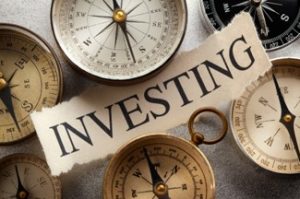 Be Like Buffett: The Merits of Passive Low-Cost Investing
Be Like Buffett: The Merits of Passive Low-Cost Investing
In his will, renowned businessman and investment strategist Warren Buffett reportedly left instructions for his heirs to invest in index funds, based on a belief that those funds would outperform actively managed, higher-fee investment vehicles such as mutual funds.
“A low-cost index fund is the most sensible equity investment for the great majority of investors,” Buffett asserts in his book, The Little Book of Common Sense Investing.
Click here for the full article
W hat We Can Learn from Baby Boomers About Managing Our Finances
hat We Can Learn from Baby Boomers About Managing Our Finances
This article is the third and final in a series that explores what people from one generation have to teach others about managing their money and their financial lives. The series concludes here with a look at what we can learn about financial responsibility from members of the Baby Boomer generation.
Click here for the full article
 A Household Spending Plan You Can Actually Stick To
A Household Spending Plan You Can Actually Stick To
There’s a reason why so many people don’t bother to put a household spending plan in place, or when they do, they struggle to follow it: because people generally don’t like to be told how to spend their money, regardless of how they might benefit from a structured approach to managing their household finances.
Click here for the full article
 What We Can Learn from Gen Xers About Managing Our Finances
What We Can Learn from Gen Xers About Managing Our Finances
This article is the second in a series of three that explore what one generation has to teach other generations about money and managing their financial lives. The series began with an article discussing what we can learn from Millennials about managing our money. It continues here with a look at what we can about financial responsibility from members of Generation X.
Click here for the full article
 What We Can Learn from Millennials About Managing Our Finances
What We Can Learn from Millennials About Managing Our Finances
Each generation is defined by a unique set of shared experiences, experiences that shape the choices members of that generation make about money and their finances. Having come of age in the 60s and 70s, amid Watergate and the Vietnam War, Baby Boomers have a flair for independence, even rebelliousness, some would say, but also a tendency toward materialism. Members of Generation X, meanwhile, are caught in the middle —between the analog world in which they grew up and the digital age they have watched emerge as adults, and, from a financial standpoint, between the employer-funded pension plans to which so many of their parents had access and the fund-it-yourself retirement plans that prevail today. Then there are Millennials, digital natives whose apparent sense of financial restraint is born of their experience with economic upheaval, skepticism about the financial “system,” a heavy college loan burden and struggles finding gainful employment.
Click here for the full article
 Gray Divorce: Dealing with the Financial Ramifications of Ending a Marriage Later in Life
Gray Divorce: Dealing with the Financial Ramifications of Ending a Marriage Later in Life
The assumption used to be that divorce happened mostly to couples in their 20s, 30s and 40s. No longer. Figures released recently by the Pew Research Center indicate that among U.S. adults 50 and older, the divorce rate roughly doubled in 15 years. In 2015, for every 1,000 married persons 50 and older, 10 divorced, up from five in 1990; among people 65 and older, the divorce rate roughly tripled between 1990 and 2015, to six people per 1,000 married individuals.
Click here for the full article
 Are You Aligned With the Right Type of Financial Professional?
Are You Aligned With the Right Type of Financial Professional?
Decide whether it’s best to work with a professional who’s a generalized of one who’s a specialist. From generalists whose expertise lies in “big picture” financial planning to specialists with a narrower focus, the term “adviser” applies to a wide range of financial and insurance professionals. Click here for the full article
 Financial Planning Checklist for MILLENNIALS
Financial Planning Checklist for MILLENNIALS
Buying a home. Getting married. Starting a family. Advancing a career. Paying down school loans and other debt. Saving for the future. And, of course, enjoying the here and now. These are just some of the priorities, milestones and responsibilities that members of the Millennial generation — the roughly 75 million Americans born between 1981 and 1997 — are confronting as 20- and 30-somethings. Click here for the full article
 Financial Planning Checklist for GENERATION X
Financial Planning Checklist for GENERATION X
Sandwiched by their dependent children on one side and their aging parents on the other, members of Generation X (born roughly between 1965 and 1980) find themselves in unique financial planning territory. How do they address their own financial priorities — fulfilling current obligations and planning for the future — while maintaining the financial wherewithal to provide support to their dependent children and to their parents, too, should they need it? Click here for the full article.

Financial Planning in the Trump Era: Finding Solid Footing Amid a State of Flux
The fundamental justifications for creating a financial plan are the same as they were a year ago, a decade ago, even a generation ago: With a comprehensive, well-thought-out and professionally quarterbacked game plan, a person gains a greater sense of control over their finances and a clear pathway for getting where they want to go in life.
But the tumultuous transition that has accompanied President Donald J. Trump’s move to the White House is creating a heightened level of uncertainty across the American political, social, economic and financial landscape. Click here for the full article.

Financial Planning Checklist for BABY BOOMERS
Each generation has its own distinct set of financial issues to grapple with — money-related priorities to meet, challenges to overcome, dreams to fulfill and values to act upon. For Baby Boomers, the generation born between 1946 and 1964, many of those issues revolve around retirement.
For them, it’s not only about addressing immediate financial needs but also taking the appropriate planning steps to position themselves for a financially secure next phase of life, whether or not the next phase involves full retirement, continuing to work, or something in between. Add to that concerns about aging parents and “boomerang” adult children, and you get an idea of just how unique and complex financial planning can be for members of the Boomer generation. Click here for full article
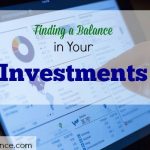 Retirement Investing: Finding the Right Balance Between Growth, Protection
Retirement Investing: Finding the Right Balance Between Growth, Protection
What’s the first thing people look at when they open their investment account statement? Usually their eyes go right to the bottom line, to see how much their shares of stock, or their mutual fund portfolio, or their retirement plan assets, have lost or gained in value.
That’s not surprising, given the inclination of so many people to prioritize higher returns on their investments in the quest to build a larger nest egg for retirement. But there comes a time when the proximity of retirement may dictate a shift in mindset, whereby protecting nest egg assets becomes just as important as growing them. Click here for full article
 Surviving the Sandwich: A Financial Balancing Act for People with Adult Kids, Aging Parents
Surviving the Sandwich: A Financial Balancing Act for People with Adult Kids, Aging Parents
If you’re feeling pressure to provide some kind of financial support to your aging parents as well as to your children while still trying to meet your own monetary goals and obligations, if you find yourself struggling to set your financial priorities because you feel pulled in multiple generational directions, you have company as a member of the Sandwich Generation.
Younger baby boomers and members of Generation X are most likely to find themselves “sandwiched.” A Pew Research Center study from 2015 found that in the United States, nearly half — 47% — of people in the 40-59 age range not only have one or two parents age 65 or older, they are also either raising a young child or have provided financial assistance to a grown child in the preceding 12 months.
 Long-Term Care, Disability and Critical Illness Insurance: Worthwhile
Long-Term Care, Disability and Critical Illness Insurance: Worthwhile
Protection or Waste of Money?
The value proposition for insurance boils down to a simple question: Does paying the premium for coverage to address a specific risk make more financial sense than potentially having to pay much more than the premium amount out-of-pocket should that risk actually become reality. If the answer is yes, then it’s a matter of finding the appropriate insurance coverage to address that risk. Click here for full article
 Your 401(k) and Prudently Managing It
Your 401(k) and Prudently Managing It
Despite the growing prevalence of 401(k)s in the U.S. workplace, employees apparently aren’t entirely comfortable with the responsibility of amassing and managing their own retirement savings accounts. Indeed, among 401(k) plan participants surveyed in 2016 by the investment firm Charles Schwab, a majority, 56%, said they are either “somewhat confident or “not very confident” about making plan decisions on their own. That lack of confidence explains in part why survey participants named “saving enough for a comfortable retirement” as their top source of financial stress. Click here for full article
The Emergency Fund: Why, How Much, How to Build One and Where to Keep the Money
Financial emergencies can strike indiscriminately and inflict major damage, particularly on people who are unprepared. Anyone is susceptible, regardless of age, financial circumstances, job standing or family situation. Which is why, according to personal finance experts, if you have something to lose financially, you need an emergency fund as insurance. Click here for full article.
Fulfilling Philanthropic, Charitable Desires, Even When Finances Are Tight
The desire to give back — to donate something of value to a favorite cause — is there, but perhaps the room in the budget to make a monetary donation isn’t.
Fret not, because when your heart says “Give” but your head says “I can’t afford to give,” there are still plenty of ways, beyond a simple cash donation, to support a philanthropic, community or charitable organization. Click here for full article.
How Much is Too Much? Understanding How Much to Hold of Any One Investment
The emotional and financial scars left by the stock market plunge that decimated so many nest eggs during the economic turmoil of 2008-2009 may have faded, but the lessons from the Great Recession apply as much today as ever. And among the most important lessons of all for investors boils down to a single word: diversification. Click here for full article.
A Dozen Ways Financial Planning Can Benefit You — Now and in Any Stage of Life
What’s keeping you from gaining a better handle on your finances and your future? It could be a preconceived notion about financial planning. Financial planning is a dynamic process where, with the help of a specially trained financial professional who is looking out for your best interests, you develop a big-picture strategy for managing your financial resources, so you’re in position to fulfill your short-term and long-term goals, with the flexibility to adjust on the fly as changing circumstances and life events dictate. Click here for full article.
